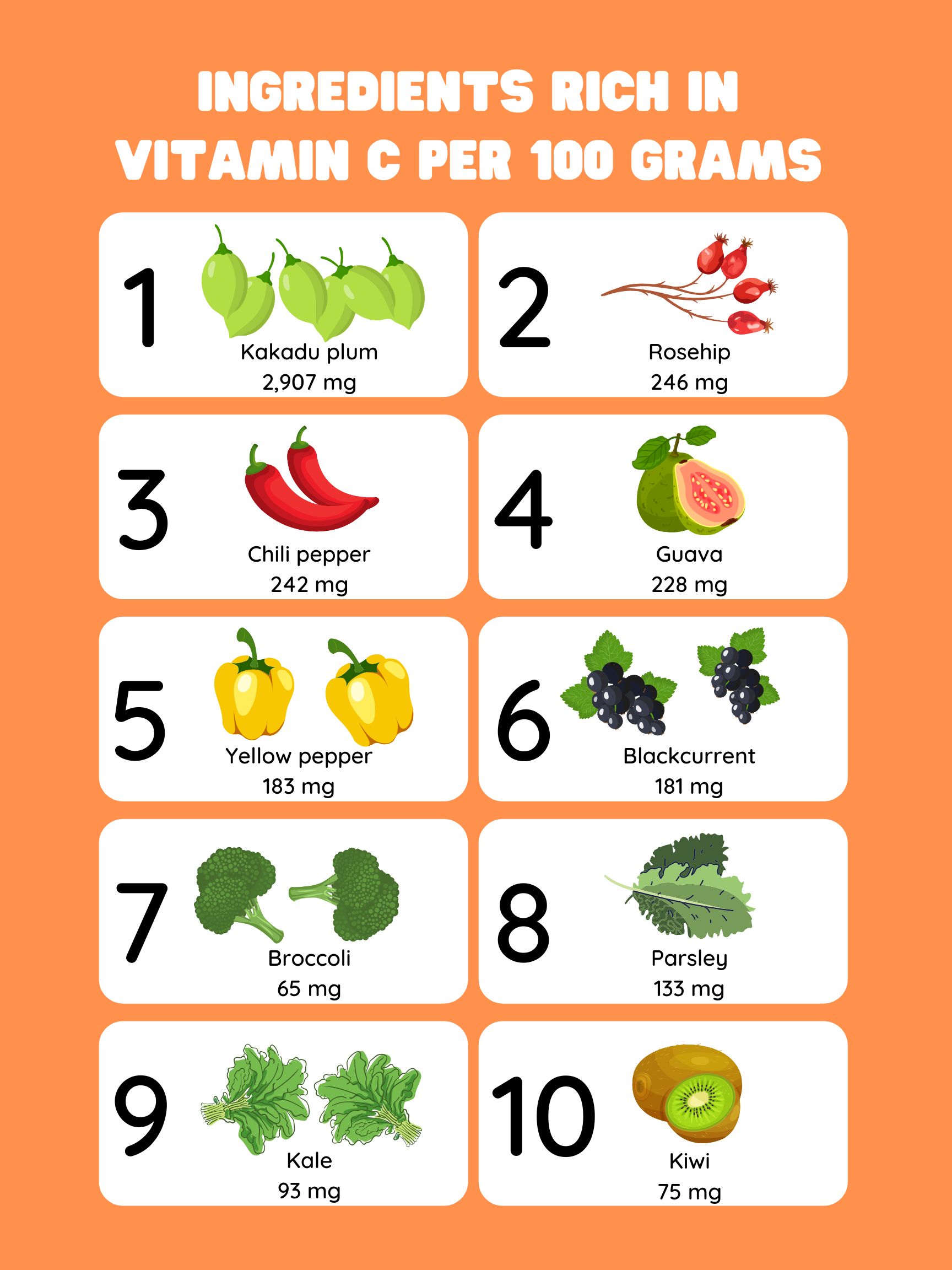Vitamin C
Vitamin C (ascorbic acid or ascorbate) is found in citrus and other fruits and vegetables and is sold as a dietary supplement. Vitamin C is an essential nutrient involved in the repair of tissue, the formation of collagen, and the enzymatic production of certain neurotransmitters. In addition, it is necessary for immune system function. It also serves as an antioxidant. Some evidence suggests that regular use of vitamin c supplements may reduce the duration of the common cold, but it does not prevent infection. Vitamin C was discovered in 1912, and in 1933, it was the first vitamin to be chemically produced. As a result, it's on the World Health Organization's List of Essential Medicines.
What are the side effects of vitamin c in skincare?
Vitamin C is a safe and well-tolerated ingredient. The only risk is that some serums claiming to contain vitamin c have so many different elements that adding these extra ingredients may result in an allergic reaction in some people. The only exception was those with sensitive skin. People with susceptible skin should consult with a dermatologist before use since potent forms of vitamin C can sometimes irritate sensitive skin. In addition, vitamin C serum may result in yellowing of the skin or clothes, stinging, or dryness, though those effects are rare. Finally, take caution when applying around the eyes.
What are the benefits of vitamin c?
As an antioxidant, one of vitamin C's primary functions is protecting the skin. Environmental stressors like ultraviolet light and pollution create free radicals in the skin. Free radicals are harsh molecules that damage cells, promoting skin dullness, wrinkles, and even cancers. Vitamin C can protect the skin from damaging free radicals caused by UV exposure.
Vitamin C is also essential in collagen synthesis. Vitamin C is necessary for building collagen bundles, without which this process halts. Vitamin C also lightens unwanted dark spots and post-inflammatory hyperpigmentation or decreases brown discoloration by blocking the pigment synthesis pathway.
Can you use vitamin c and niacinamide together?
The short answer is yes, you can. However, the two could potentially react to produce nicotinic acid, which can cause redness and itching in the skin.
Is it good for you the have vitamin c daily?
Yes, you can use vitamin c daily. What time of the day is the best for vitamin c application? Some people think that morning is best for protecting the skin. Others favor nighttime when the skin's vitamin C is most depleted. Consistency is most important when it comes to applying vitamin c products. If you decide to apply it in the morning or at night, avoid using it simultaneously as benzoyl peroxide. Using it daily or every other day is perfectly normal, and if you're using a serum (the most common product for vitamin C), apply it after cleansing.

Which foods are high in vitamin c?
The highest content of vitamin c is in fruits and vegetables. Vitamin C is the most widely taken dietary supplement. Though plants are generally a good source of vitamin C, the amount in food or plant origin depends on the soil condition, the climate where it grew, storage conditions, and preparation method. The top five most rich foods with vitamin c are:
- Kakadu plums - up to 2,907 mg of vitamin C per 100 grams
- Acerola cherries - one-half cup of acerola cherries delivers 916% of the recommended DV
- Rose hips - 426 mg of vitamin C per 100 grams
- Chili peppers - 242 mg of vitamin C per 100 grams
- Guavas - 228 mg of vitamin C per 100 grams
Have We Missed Anything?
- We Would Like To Hear From You!
- Which Advice Did You Find Valuable Today?
- Let us Know Down Below in the Comment, Review Section!
- Visit Skin-Beauty.com for more blogs, and beauty products!
Recent Posts
-
Understanding the Top Side Effects of Retinol: Pros and Cons
Learning about the Side Effects of Retinol: Pros and Cons Brief Overview of RetinolThis month w …Jul 25th 2024 -
Transform Your Skin with Retinol: Before and After Results
Transform Your Skin with Retinol: Before and After Results Retinol, a potent retinoid, is renown …Jul 23rd 2024 -
Beginner's Guide to Retinol Cream and Serum: What Does it Do?
Beginner's Guide to Retinol Cream and Serum: What Does it Do?Retinol has become a buzzword in the be …Jul 18th 2024




